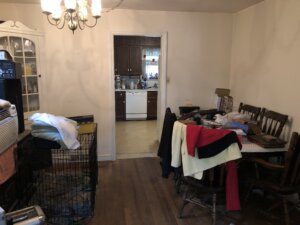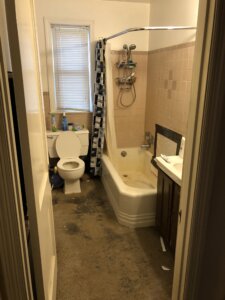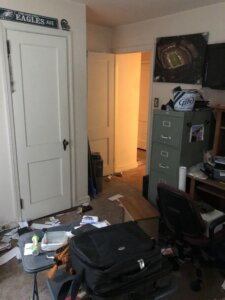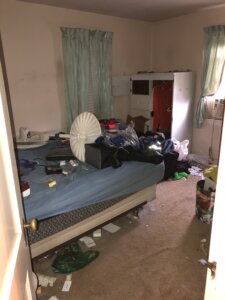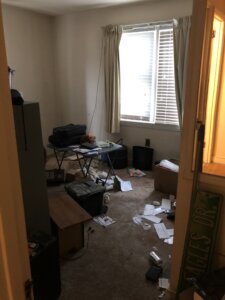Now that the mortgage forbearance has come to an end you may be thinking how can I stop foreclosure immediately on my Delaware home. We have outlined several solutions to help you stop foreclosure now!

It’s not secret that the 2020 and parts of 2021 have been some of the most challenging and unpredictable time in U.S. history. For the entire country and many homeowners. Most of what we are seeing these days online and T.V. is “how low interest rates” are or “how HOT the real estate market is.” Especially, for sellers with plenty of equity in their properties. Many of which who who are unintentionally creating bidding wars and selling their homes “above asking price.” Sometimes anywhere from $10,000 to $50,000 above their original listed price.
By no means am are we fortune tellers. We don’t have a crystal ball showing me what this means for the future of our economy. One thing we are certain of is there is not enough attention being directed towards homeowners who are still being challenged by the realities of the global pandemic. Many of which still do not have jobs, are relying on government assistance or still don’t have the means to keep up with their mortgage payments. Under the CARES Act, homeowners with conventional, FHA, VA, or USDA loans could request an initial loan forbearance for up to six months. They were also given the opportunity to request a six-month extension, for up to one year of total forbearance. This means homeowners who were approved for forbearance plans early in 2020 are nearing the end of their forbearance periods. As of right now the nation’s forbearance period is scheduled to end June 30, 2021. In other words at the end of the forbearance period your lender will expect a lump sum payment of the payments that were missed during that period.
For example,
- Say you have a conventional mortgage loan
- You initially requested forbearance on June 30, 2020
- At the end of your six-month forbearance period, you requested a six-month extension
- Your current forbearance plan would be set to expire on June 30, 2021
Many Americans, though, are still experiencing financial hardship. If you’re currently unemployed or in a position where you’re unable to resume monthly mortgage payments, you may be able to extend your forbearance plan for another 3-6 months (not guaranteed)
Are Lenders Still Considering Extensions?
If you are still experiencing financial distress it’s completely understandable if you’re worried about how you’re going to pay all of those missed payments.
Don’t worry there is some good news! Recent changes by Fannie Mae, Freddie Mac, and the federal government have given homeowners additional opportunities to extend their forbearance plans.
- Homeowners with conventional loans can request one additional 3-month extension, for fifteen months total loan forbearance. To be eligible, you need to have been in a COVID-19 forbearance plan prior to February 28, 2021
- Homeowners with government-backed loans (FHA, VA, USDA) can request two additional three-month extensions, for up to eighteen months total forbearance. To be eligible, you need to have been in a forbearance plan prior to June 30, 2020
So, depending on the type of mortgage you have, you may be eligible for fifteen to eighteen months of loan forbearance when all is said and done.
Forbearance Is NOT Loan Forgiveness But There Are Options
As stated at the beginning of this article 2020 & 2021 have been very unpredictable. Forbearance might be a cloud that remains for years to come. Even if this is true it can’t be said enough. FORBEARANCE IS NOT LOAN FORGIVENESS. Even though lenders are experiencing their own challenges they still expect homeowners to pay the principal and interest that they didn’t pay during the forbearance period.
However, there is no guarantee you will be approved for an extension. Your lender still has the final say. Even if your financial situation has not changed over the last year the forbearance period will NOT be automatically extended. If you need an extension, you must call your lender immediately and request one. During normal times you could expect your lender to reach out to atleast a month before your period comes to an end. Right now, you shouldn’t expect this. You will will have to take a more proactive approach if you have plans to keep your home. Expect increased wait times and some unfortunate inefficiencies when trying to navigate through this process. Many lenders are experiencing their own challenges. From improper staffing to high volumes of requests, to new rules being put in place as the lenders receive guidance from regulators in the industry. organizations are not all properly staffed for the expected volume of forbearances, and they can’t train support agents fast enough to meet their needs. With all that said DON’T GIVE UP!
Even though these types of situations can be considered challenging, stressful, and negative there are options! Which is definitely a positive.
Examples include:
- Full repayment, which is a one-time lump sum payment. If you have the means to do such you will be able to pay back all the missed payments at once.
- Loan Modification – A loan modification is a change to the original terms of your mortgage loan. Unlike a refinance, a loan modification doesn’t pay off your current mortgage and replace it with a new one. Instead, it directly changes the conditions of your loan. Even when COVID is not a factor lenders offer these to homeowners experiencing financial hardship. Keyword “hardship” If you decide to go down this path you must be honest and truthful. If approved you can expect to see your monthly payment reduced (lower interest rate, reduced monthly payment, and your loan extended to include all of the missed payments). If you do decide to pursue a modification your lender will have you completion a “mortgage assistance application” You’ll provide basic information about yourself, your hardship, and your property. You’ll be asked to provide documents supporting the hardship such as income statements, unemployment verification, a list of all your household expenses ($ amounts included) & debts, along with your tax returns over the last few years. If approved they’ll give you a three month trial period with your new payments. If you’re on time with each payment they will send a new package to your house finalizing your “modified loan.” Remember, lenders are experiencing their own hardships so you will need to be very proactive with this approach. We’ve helped several homeowners over the last year that wanted to sell their property while pursuing a loan modification. The shortest was two weeks and the longest was nine months.
- Intermittent payments, where you arrange repayment with your lender over three, six, nine, or twelve months— whichever makes the most sense — on top of your regular payments.
- Payment deferral. This option lets you pay off the missed amount when the home is sold, refinanced, or at the end of the loan term.
- Short Sale – A short sale in real estate is when a financially distressed homeowner sells their property for less than the amount due on the mortgage. The buyer of the property is a third party (not the bank), and all proceeds from the sale go to the lender.
What About Refinancing?
It is certainly an option. If you are approved for a loan modification and it includes a lower interest rate and monthly payment, it could make resuming your mortgage payments that much easier. However, if you are in a situation where your property still has “little” “zero” or “negative equity” this might not make much sense.
If you do decide to refinance it will take some time, but your lender might allow you to do such after a few months of on time payments. Again, lenders are experiencing their own challenges and are being required to follow constant regulatory changes. Rules today may not be allowed or applicable in the coming months so you need to pursue any option with urgency.
What Should I Do Next?
At the end of the day the best option for you depends on your current finances, employment status, and ability to resume mortgage payments. When you contact your lender be sure to discuss every option in detail so you know exactly what to expect.
As mentioned, we’ve been able to offer foreclosure help to Delaware residents since the start of the pandemic walk away from their homes. Even with some of the options above they still would rather start a new chapter in their life and put their problem property behind them. Many of them have still been able to build new lives, inside new homes, without the memories that took place in their former residence.
How We Can Possibly Help
Here is a home we were able to stop from foreclosure. Unfortunately, due to some non COVID related matters they fell behind on their mortgage and were unable to make payments since November 2019. Both owners were going through a divorce and wanted no more responsibility for the property especially since they both found new accommodations. To make matters worse they had a relative living in the property who was not contributing to the monthly payments or upkeep of the property. Fortunately, they reached out at the right time. In less than 30 days they were relieved from the headache, heartache and gave them the peace of mind they so desperately needed.
Thank You! You were the right person in the right place at the right time. I prayed for a miracle and there you were



